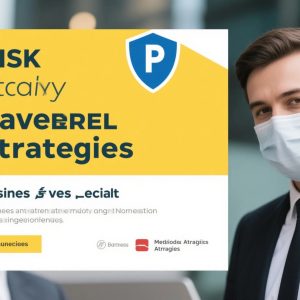The Critical Insurance Foundations Every Startup Needs
Launching a new business comes with countless decisions, but few are as crucial as securing proper startup business insurance. Many founders mistakenly believe insurance can wait until their operation grows, not realizing that some of the greatest vulnerabilities exist during those fragile early stages. A single lawsuit or property loss can devastate an unprotected startup before it gains traction. The most common risks – intellectual property disputes, product liability claims, or even simple slip-and-fall accidents at your workspace – don’t discriminate based on company size or revenue. Savvy founders treat insurance as foundational infrastructure rather than an optional add-on, recognizing that proper coverage enables everything from securing office space to attracting investors.
What makes startup founder insurance particularly complex is the evolving nature of risks in today’s business environment. Traditional concerns like property damage and general liability now intersect with emerging threats like cyber attacks and AI-related liabilities. Many startups operate in regulatory gray areas where standard policies might not provide adequate protection. The most comprehensive coverage programs address both immediate operational risks and long-term exposures that could emerge as the business scales. Founders who invest time upfront to understand these intersecting protections create resilient foundations capable of withstanding early-stage storms.
Essential Coverages for Early-Stage Companies
Building a balanced small business liability coverage portfolio requires understanding which protections deliver the most value at each growth phase. General liability insurance forms the bedrock for most startups, covering third-party bodily injuries, property damage, and personal/advertising injury claims. Product liability becomes crucial for physical goods manufacturers, while professional liability (errors & omissions) protects service-based businesses against claims of inadequate work. Many founders overlook directors and officers (D&O) coverage, not realizing that even pre-revenue startups can face lawsuits from co-founders or early investors.
The changing nature of startup risk coverage in 2025 demands particular attention to digital assets and remote operations. Cyber liability insurance has transitioned from nice-to-have to essential, as even small startups handle sensitive customer data. Many policies now include ransomware protection and regulatory defense coverage – critical safeguards in our breach-prone world. For startups with remote teams, employers practice liability coverage helps address HR risks scattered across multiple jurisdictions. The most forward-looking programs also consider intellectual property infringement protection, as legal battles over patents or trademarks can be particularly devastating to cash-strapped young companies.
Home-Based Startups: Special Insurance Considerations
Operating from home creates unique insurance challenges that standard home-based business insurance must address. Many founders mistakenly believe their homeowners or renters policy covers business activities, only to discover dangerous gaps when claims arise. Most residential policies explicitly exclude business-related losses, leaving equipment, inventory, and liability exposures unprotected. Even simple activities like client meetings at your home or storing business documents could jeopardize your personal coverage if not properly disclosed and endorsed.
The level of startup founder insurance needed for home operations depends largely on business activities. Service professionals like consultants might only need a home business endorsement adding limited liability coverage. Product-based businesses storing inventory or using specialized equipment typically require separate business policies. Those with frequent client visits or employees working onsite often need full commercial coverage regardless of location. The most thorough approach involves consulting both your home and business insurance providers to ensure seamless protection without overlapping or gaps between policies.
Cost-Effective Strategies for Cash-Strapped Startups
While comprehensive startup business insurance is essential, early-stage companies must balance protection with limited budgets. Many insurers now offer pay-as-you-go general liability policies that scale premiums with revenue – ideal for pre-revenue or bootstrapped operations. Bundling multiple coverages into a Business Owner’s Policy (BOP) can provide substantial savings compared to purchasing protections separately. Some carriers offer “incubator rates” for startups affiliated with recognized accelerator programs, while others provide discounts for implementing specific risk controls like cybersecurity protocols or safety training.
Creative approaches to small business liability coverage can further stretch limited resources. Higher deductibles on property policies reduce premiums while maintaining catastrophic protection. Industry-specific group plans through professional associations often provide better terms than individual policies. Many founders initially forego business interruption coverage in favor of more critical protections, adding it later when revenue streams become established. Perhaps most importantly, working with a broker who specializes in startup risks ensures you get the right coverage without paying for unnecessary bells and whistles your operation doesn’t yet need.
Navigating Investor and Regulatory Requirements
Securing funding often introduces specific startup risk coverage mandates that founders must anticipate. Venture capital firms routinely require proof of directors and officers insurance before wiring funds. Commercial landlords typically demand general liability coverage with specific limits and additional insured endorsements. Many client contracts, especially with larger corporations or government entities, stipulate minimum coverage levels for professional liability and cyber policies. Understanding these requirements early prevents last-minute scrambles that could delay crucial deals or funding rounds.
The regulatory landscape for home-based business insurance adds another layer of complexity that varies by industry and location. Food preparation businesses operating from home often need special endorsements for equipment and liability. Consultants handling healthcare or financial data face stringent cybersecurity insurance requirements. Even simple e-commerce operations might trigger sales tax nexus rules that influence coverage needs across multiple states. Savvy founders conduct “insurance mapping” early on – identifying all potential regulatory and contractual requirements to build a coverage roadmap that scales with their growth trajectory.

Emerging Risks Every 2025 Startup Should Address
The startup risk landscape continues evolving in ways that demand updated startup founder insurance strategies. AI-related liabilities represent a growing concern, from copyright infringement claims to errors in AI-assisted services. Climate change has increased weather-related business interruption risks, even for digital operations dependent on cloud infrastructure. The remote work revolution has scattered assets and workforces in ways that challenge traditional policy structures. Forward-looking founders now consider these emerging threats alongside standard coverage needs when building their protection frameworks.
Technology-specific startup business insurance solutions are emerging to address these new realities. Some carriers now offer “fail-safe” policies that cover regulatory penalties when startups unintentionally violate evolving compliance rules. Others provide media liability endorsements for content-driven businesses navigating today’s defamation-sensitive environment. The most innovative programs incorporate crisis management coverage – providing PR and legal support when startups face viral social media attacks or other reputation threats that could derail early growth.
Common Insurance Mistakes That Jeopardize Startups
Even well-intentioned founders frequently make critical errors when securing small business liability coverage. Underinsuring to save money often backfires when claims exceed policy limits. Failing to properly classify employees versus contractors can invalidate workers’ comp coverage. Neglecting to update policies after pivoting business models leaves dangerous gaps. Perhaps most damaging is the “set it and forget it” approach – failing to regularly review coverage as the business evolves through different growth stages and risk profiles.
The consequences of inadequate startup risk coverage often surface at the worst possible moments – during funding due diligence, after a data breach, or when facing a lawsuit. Some mistakes create uninsurable situations, like waiting until after receiving a patent infringement notice to seek protection. Others lead to premium shocks at renewal when insurers discover misrepresented operations or undisclosed risks. The most protected startups implement regular “insurance health checks” – ideally quarterly – to ensure coverage keeps pace with their evolving business realities and the changing external risk environment.
Building an Insurance Strategy That Scales With Growth
Successful startups view home-based business insurance not as a one-time purchase but as an evolving protection framework. Early-stage coverage priorities differ dramatically from growth-phase needs. Many founders begin with essential liability protections and basic property coverage, then add layers like employment practices liability when hiring begins. The transition from home office to commercial space introduces new requirements, as does expanding into international markets or regulated industries.
The most strategic approach to startup founder insurance involves creating a roadmap that anticipates these transitions. Some work with brokers to establish trigger points – specific revenue milestones, headcount increases, or geographic expansions – that signal when to upgrade coverage. Others implement “insurance sprints” coinciding with funding rounds to address investor requirements while capital is available. Perhaps most importantly, scaling startups maintain meticulous records of safety protocols, employee training, and risk management practices – documentation that becomes invaluable when negotiating terms with insurers as the operation grows more complex.





